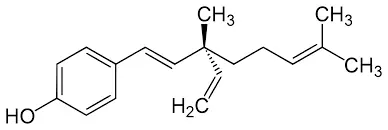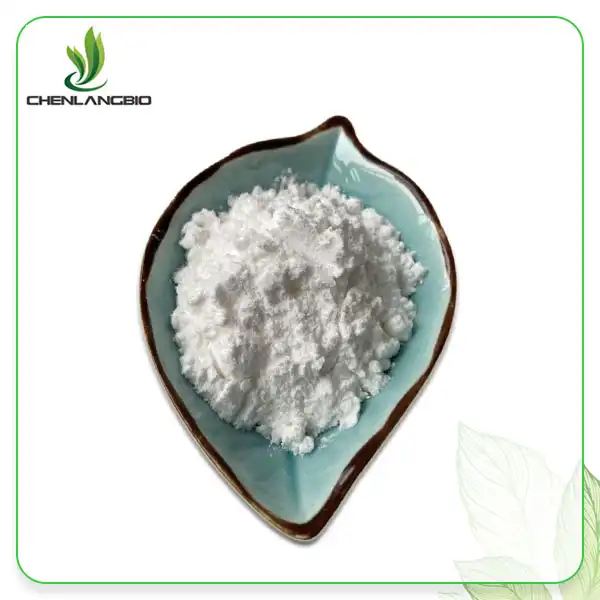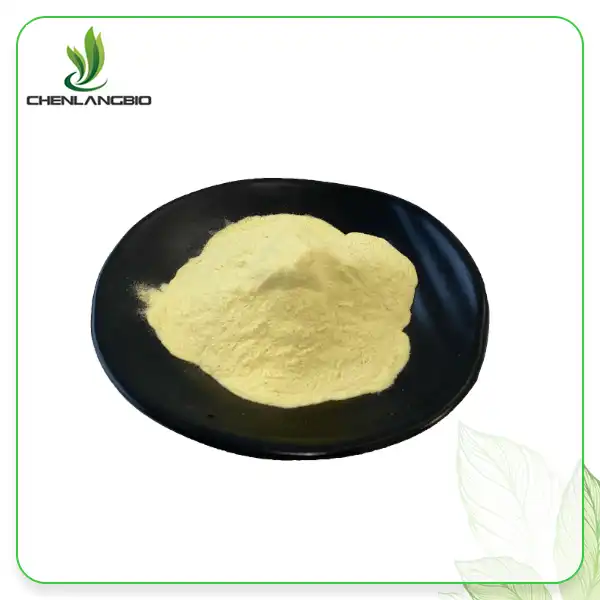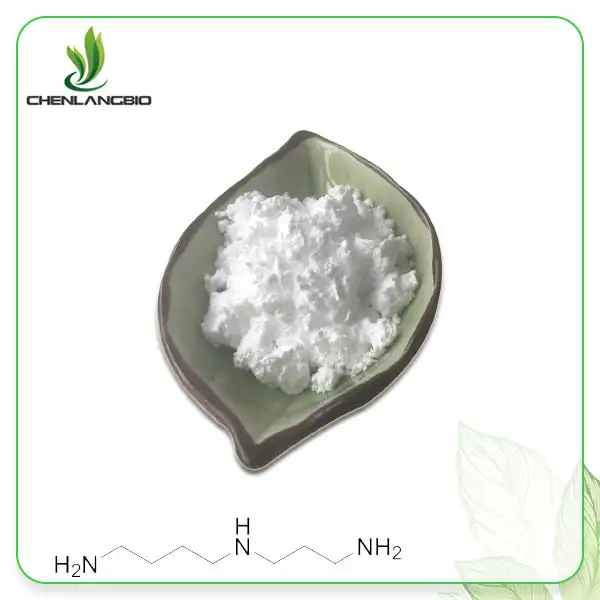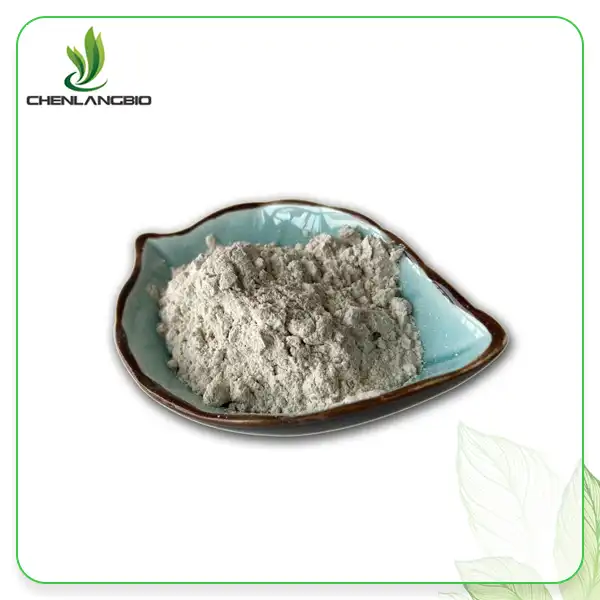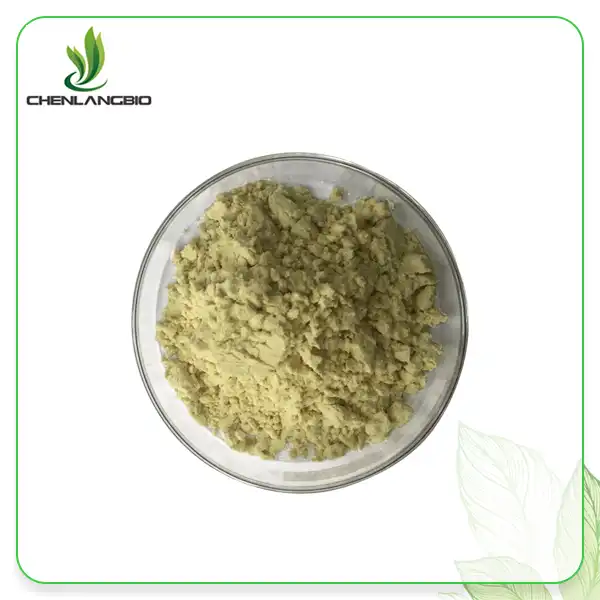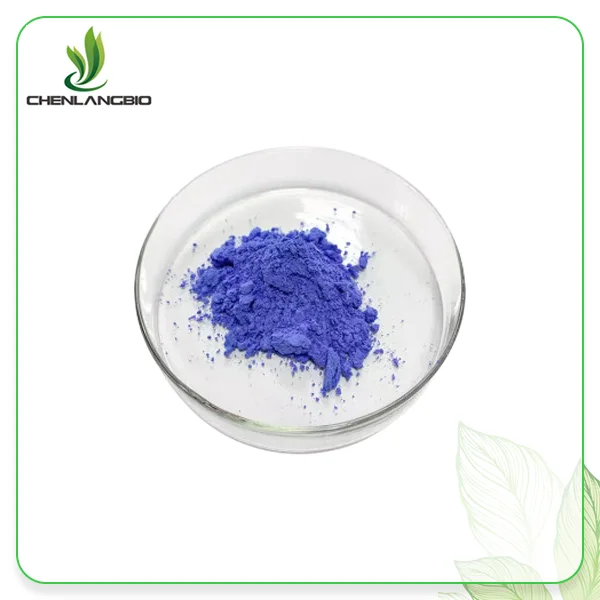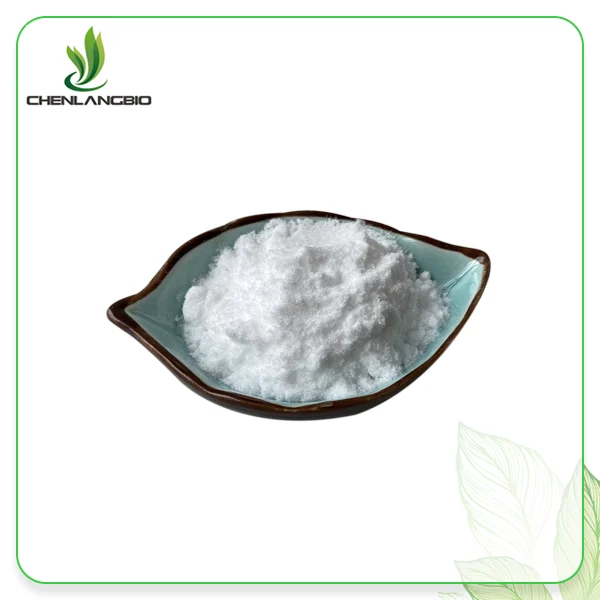Does Bakuchiol Fade Dark Spots
2024-07-13 10:25:47
In the skincare sector, bebuchiol has gained popularity as a mild and natural substitute for retinol. Bakuchiol, which is derived from the seeds and leaves of the Psoralea corylifolia plant, has several advantages over other skin care products, such as better firmness, texture, and anti-aging capabilities. Is it possible for bakuchiol to successfully lighten dark spots? is a common question. In order to offer a thorough response, this blog will examine this subject and draw on user experiences, clinical studies, and scientific research.
How Does Bakuchiol Work to Lighten Dark Spots?
Hyperpigmentation, often known as black patches, is when skin in certain places becomes darker than the surrounding skin as a result of overproduction of melanin.It is thought that bakuchiol lightens these stains in a few different ways.
1. Bakuchiol's Mechanism of Action
Bakuchiol functions by obstructing melanin, the substance that causes dark spots. Tyrosinase is an enzyme needed for the formation of melanin, and this enzyme inhibitor specifically targets it.
Bakuchiol helps to lighten existing dark spots and stop the production of new ones by inhibiting the action of this enzyme.
2. Clinical Studies on Bakuchiol and Hyperpigmentation
Studies have demonstrated encouraging outcomes about bakuchiol's efficacy in managing hyperpigmentation.Both retinol and bakuchiol dramatically decreased hyperpigmentation, according to a research that was published in the British Journal of Dermatology.However, subjects tolerated bakuchiol better.
3. Comparison with Other Skin Lightening Agents
Bakuchiol offers a gentle alternative to other skin lightening agents like hydroquinone and retinol, which can cause irritation and sensitivity. Unlike these harsher ingredients, bakuchiol provides similar benefits without the associated side effects, making it suitable for a wider range of skin types.
4. Antioxidant Properties and Skin Brightening
Bakuchiol's antioxidant properties play a role in its ability to lighten dark spots. By neutralizing free radicals, it helps prevent oxidative stress and damage to skin cells, which can contribute to hyperpigmentation. This protective effect supports a brighter, more even skin tone.
5. User Experiences and Testimonials
Many users have reported noticeable improvements in their skin's appearance, including a reduction in dark spots, after incorporating bakuchiol into their skincare routine. These anecdotal experiences, combined with scientific evidence, support the claim that bakuchiol can effectively lighten dark spots.
Can Bakuchiol Be Used on All Skin Types for Dark Spot Treatment?
One of the key advantages of bakuchiol is its suitability for all skin types, including sensitive skin. But how effective is it for different skin types in treating dark spots?
1. Effectiveness on Sensitive Skin
Bakuchiol is well-tolerated by sensitive skin, making it a preferred choice for individuals who experience irritation with traditional skin lightening agents. Its gentle nature allows for consistent use, leading to more sustained results in fading dark spots.
2. Suitability for Acne-Prone Skin
For those with acne-prone skin, bakuchiol offers the benefit of being non-comedogenic, meaning it does not clog pores. Its anti-inflammatory and antibacterial properties help reduce acne breakouts, while its skin lightening effects address post-acne hyperpigmentation.
3. Performance on Dry and Mature Skin
Bakuchiol's hydrating properties make it suitable for dry and mature skin types. It helps improve skin elasticity and reduce the appearance of fine lines and wrinkles, while also lightening dark spots. Its moisturizing effects ensure that the skin remains hydrated and plump.
4. Compatibility with Other Skincare Ingredients
Bakuchiol can be easily integrated into existing skincare routines without causing adverse reactions. It works well with other active ingredients, such as vitamin C and hyaluronic acid, which further enhance its skin lightening and brightening effects.
5. User Testimonials Across Skin Types
Users from various skin types have shared positive experiences with bakuchiol, noting improvements in skin tone and a reduction in dark spots. These testimonials highlight bakuchiol's versatility and effectiveness in treating hyperpigmentation across different skin types.
How to Use Bakuchiol for Best Results in Fading Dark Spots?
To achieve the best results in fading dark spots with bakuchiol, it is essential to use the product correctly and incorporate it into a comprehensive skincare routine.
1. Choosing the Right Product
Select a bakuchiol product that suits your skin type and concerns. Bakuchiol is available in various formulations, including serums, creams, and oils. Ensure that the product contains a sufficient concentration of bakuchiol for effective results.
2. Gradual Introduction
Start by introducing bakuchiol gradually into your routine. Use it every other night and observe how your skin reacts. Gradually increase the frequency to nightly use as your skin builds tolerance.
3. Pairing with Sunscreen
Using sunscreen is crucial when treating dark spots, as UV exposure can worsen hyperpigmentation. Apply a broad-spectrum sunscreen with an SPF of at least 30 every morning to protect your skin and enhance the effects of bakuchiol.
4. Combining with Other Active Ingredients
For enhanced results, consider combining bakuchiol with other skin brightening ingredients such as vitamin C, niacinamide, and alpha arbutin. These ingredients work synergistically to fade dark spots and improve overall skin tone.
5. Consistency is Key
Consistency is vital when using bakuchiol for dark spots. Regular and sustained use over several weeks to months is necessary to see significant improvements. Patience and persistence will yield the best results.
Are There Any Side Effects of Using Bakuchiol for Dark Spots?
While bakuchiol is generally well-tolerated, it is essential to be aware of potential side effects and how to manage them.
1. Initial Mild Irritation
Some users may experience mild irritation when first using bakuchiol, such as redness, dryness, or a slight stinging sensation. This is often temporary and can be minimized by starting with a lower concentration and gradually increasing it.
2. Patch Testing
Perform a patch test before full application to ensure that you do not have an allergic reaction to bakuchiol. Apply a small amount to a discreet area of skin and monitor for any adverse reactions over 24-48 hours.
3. Interaction with Other Skincare Ingredients
While bakuchiol can be combined with other skincare ingredients, it is essential to avoid mixing it with strong exfoliants or high concentrations of actives that may cause irritation. Layering products correctly can help prevent adverse reactions.
4. Consulting a Dermatologist
If you have a history of allergic reactions to skincare products or are unsure how your skin will react to bakuchiol, consulting a dermatologist is advisable. They can provide personalized advice and recommend alternative treatments if necessary.
5. Monitoring Skin Response
Pay attention to how your skin responds to bakuchiol. If you experience persistent irritation or discomfort, reduce the frequency of use or discontinue the product and seek advice from a healthcare professional.
Conclusion
Bakuchiol is a potentially effective and adaptable chemical that can lighten dark spots and even out skin tone. All skin types, including sensitive skin, can benefit from its soothing nature. In addition, it has a number of extra advantages like anti-aging and moisturizing qualities. You may attain a more balanced and radiant complexion by including bakuchiol into a regular skincare regimen and being aware of any possible negative effects. For further individualized guidance or product suggestions, send an email to admin@chenlangbio.com.
References
Healthline | What Is Bakuchiol and Should You Use It in Your Skin-Care Routine?
Dermstore | Bakuchiol: The Natural Alternative to Retinol.
Harper’s Bazaar | Bakuchiol: The Plant-Based Retinol Alternative.
Byrdie | Everything You Need to Know About Bakuchiol.
Allure | Bakuchiol Is the New Retinol Alternative.
The Dermatology Review | Bakuchiol Benefits for Skin.
Good Housekeeping | Bakuchiol vs. Retinol: What’s the Difference?
Marie Claire | Bakuchiol: The Gentle Retinol Alternative Your Skin Will Love.
Glamour | The Benefits of Bakuchiol for Your Skin.
Vogue | Bakuchiol: The New Wonder Ingredient in Skincare.
Send Inquiry
Related Industry Knowledge
- Bulk Dimethylmethoxy Chromanol: A Guide to Skin Protection
- How to Use Centella Asiatica?
- How Does Nitenpyram Work
- How Should Dimethylmethoxy Chromanyl Palmitate Be Applied
- What is Ectoin Made of
- What Are the Downsides of Bakuchiol
- What Is The Mechanism Of Action Of Dyphylline
- What is Nuciferine
- Can NMN Raise Blood Pressure
- What’s Difference Between the Resveratrol Extract Powder, Coenzyme Q 10 Powder

